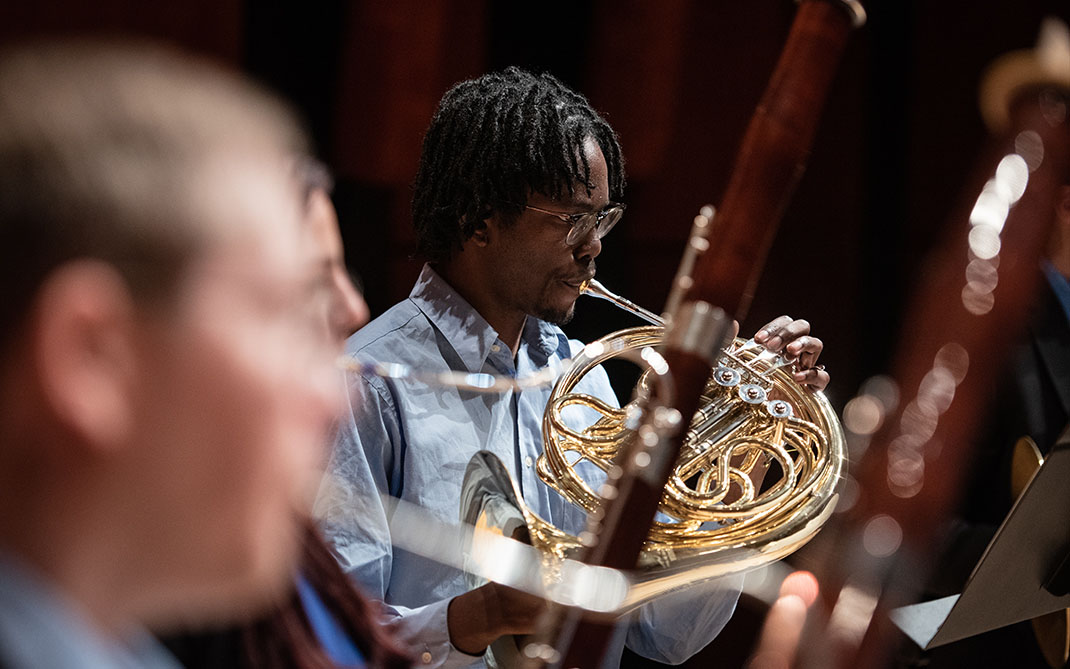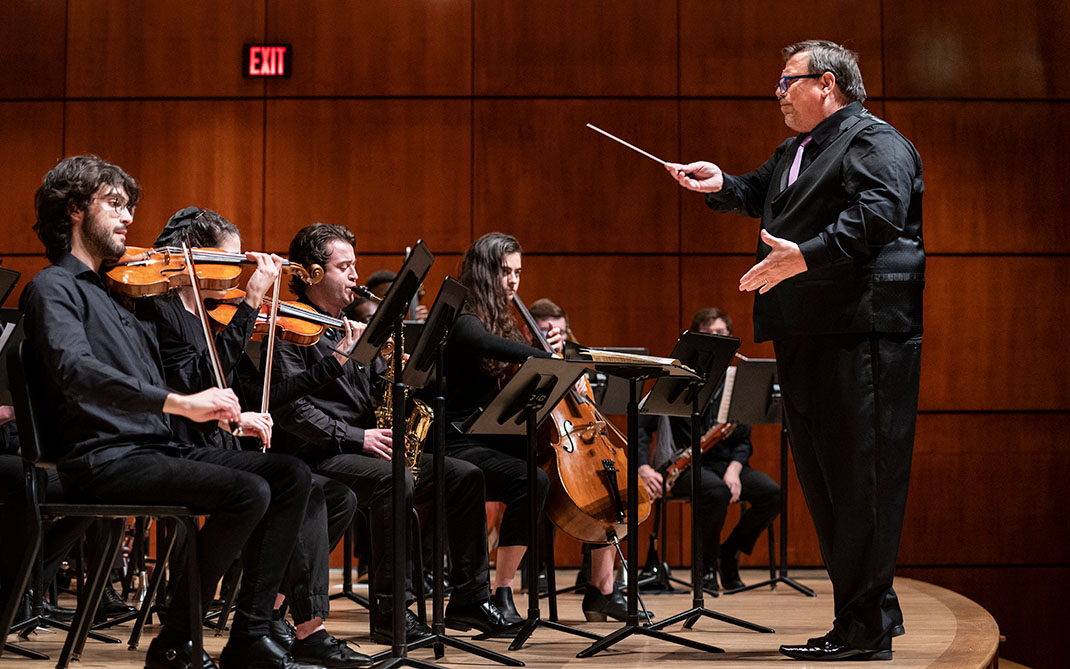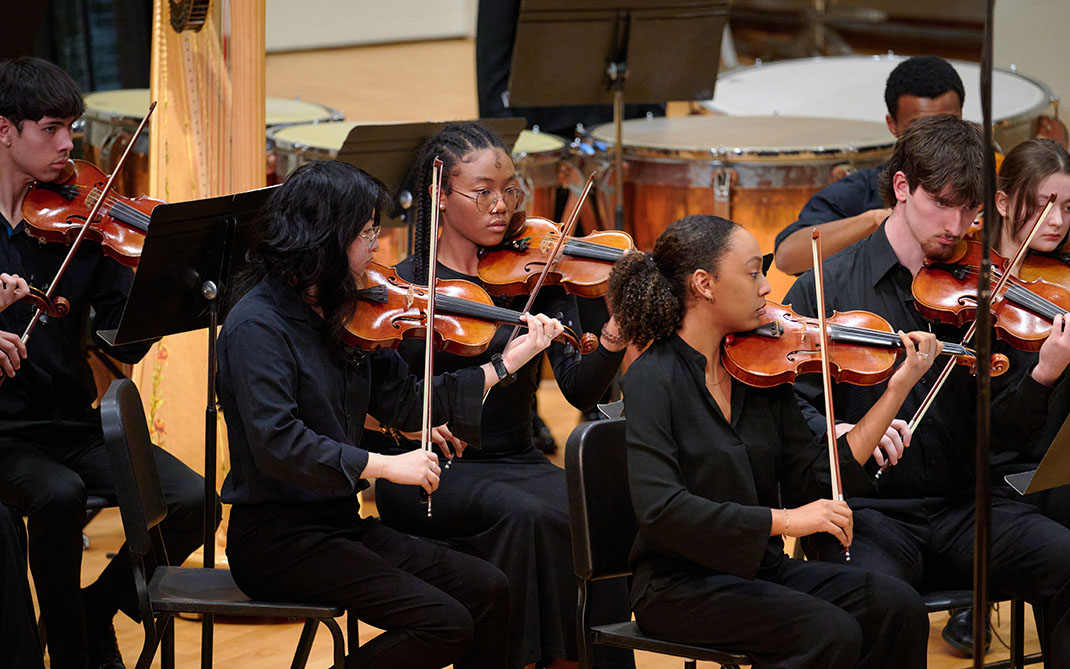Centers & Affiliated Entities Policy 105
| Policy 105 | Approved: September 27, 2013 |
| UNIVERSITY OF NORTH CAROLINA SCHOOL OF THE ARTS Centers & Affiliated Entities Policy Policy 105 |
|
| Source of Authority: | UNC Policy Manual §§ 400.5[R], 600.2.5, 600.2.5[G], 600.2.5[R] |
| Revision Authority: | Board of Trustees |
| History: | First Issued: September 27, 2013 |
| Related Policies: | UNC Policy Manual § 400.5[R]; UNC Policy Manual § 600.2.5; UNC Policy Manual § 600.2.5[G]; UNC Policy Manual § 600.2.5[R]; Facilities Use Policy 402; Foundation Faculty/Staff Loan Fund Policy 613; Foundation Funds Use Policy 202 |
| Responsible Offices: | Chancellor Provost Vice Chancellor for Finance and Administration Chief Advancement Officer |
| Effective Date: | September 27, 2013 |
I. Purpose
Centers and Institutes employ highly competent faculty, staff and students and offer constituents a critical mass of talent that surpasses the capabilities of each of their individual organizations. Supported by a strong academic system, these partnerships create new and diverse opportunities that expand the knowledge, economic condition and quality of life in North Carolina and the nation.
For purposes of classification, there is no technical distinction between the terms center and institute. In practice, an institute frequently refers to an entity having a broader scope of activity than a center. For example, an institute may create centers as separate units within its administrative structure. Centers and institutes may require new infrastructures to facilitate administration, fiscal management, and on-going activities. Many centers and institutes report to or involve only a single UNC campus. Some involve more than one UNC campus and require significant, sustained, and necessary multi-campus collaboration in one or more aspects including leadership, governance, mission, core activities, funding, and other resources. A center or institute may, under appropriate circumstances, include the participation of other institutions, agencies, or organizations, such as other colleges and universities, schools, hospitals, industry, foundations, or governmental bodies. Centers and institutes do not have jurisdiction over academic curricula, although they may offer courses in cooperation with academic units.
II. Scope
This policy is specifically intended to facilitate the establishment and operation of appropriate UNCSA Centers and Institutes, to prevent the creation of units that unnecessarily duplicate the mission and programs of existing units, and to give UNCSA administrators responsibility in their management. This policy will apply to all organized research, instructional or public service units that represent themselves to the university community and to the general public as being a “Center” or an “Institute” of UNCSA.
Multi-campus centers and institutes are defined as involving the participation of more than one institution of the UNC system, including shared administrative and fiscal oversight or substantial involvement of more than one UNC institution in on-going activities. Chapter 400.5 of The Policy Manual of The University of North Carolina (opens in new tab)is the governing document for UNC multi-campus Centers and Institutes.
The provisions of this regulation are intended to enable campuses to effectively manage centers and institutes, whether institutional or involving multiple campuses. Inter-institutional centers and institutes are hence not singled out as exceptional circumstances requiring system-level oversight but rather to be considered as a customary practice that may require some additional considerations. UNC System Office, through the Office of Research and Sponsored Programs, can offer assistance during the planning phase of complex multi-campus efforts.
III. Definitions
A. “Center” endeavors to cross disciplines and merge complementary fields of exploration that may exist in different departments, but that when joined in partnership serve to advance knowledge in directions not previously envisioned. An UNCSA Center is an organized unit designed to facilitate interdisciplinary activity in any university mission (such as instruction, research, or outreach). A Center may be designated as a research, public service and/or instructional unit. Centers may also be Membership Centers, and/or seek shared industrial support to maximize technology transfer impact.
B. “Institute” is an organized unit that generally has a larger-scale mission and set of goals and objectives than a Center. An Institute may create Centers as administrative units within its organization. If funding is given to an Institute with the specification that it be used for a Center, that Center must be established as a separate unit of the Institute using this policy.
C. “Membership Centers and Institutes” derive the bulk of their funds from fees or assessments paid by members and deposited into a common university account.
IV. Policy
A. Responsibilities
1. Administrative Campus:
a. Each center or institute must designate an administrative campus. For centers and institutes situated on a single campus, this designation is straightforward. Full authority for the oversight of institutional centers and institutes rests at the campus level, including establishment, management, and discontinuation.
b. For centers and institutes involving more than one UNC campus, agreement on an administrative campus must be reached. Administrative campuses are responsible for the general and fiscal oversight and management of their institutional centers and institutes, in accordance with this policy and campus level policies and procedures.
2. Board of Trustees:
a. The Board of Trustees of each administrative campus has the authority to approve campus level policies on centers and institutes and to authorize the establishment and the discontinuation of institutional centers and institutes.
b. The Board of Trustees may, upon official action, delegate authorization, for establishment and/or discontinuation, to the Chancellor.
3. Director:
a. Each center or institute must identify a director.
b. Center and institute directors are responsible for the day-to-day programmatic, fiscal and personnel decisions associated with the center and institute mission and core personnel.
4. Center or Institute Boards or Committees:
a. Center or Institute may determine that an advisory or policy board is needed. Boards or committees are particularly useful when the center or institute must coordinate efforts across departments, units, or institutions. Such boards do not have the authority to make hiring offers to directors or other staff.
b. While boards may make recommendations regarding the use of center and institute funds, such entities do not have the authority to access, use, or otherwise control funds associated with the centers and institutes.
5. Authority through Bylaws, Memoranda of Understanding, or other Governing Documents:
a. Centers and institutes, particularly those requiring sustained involvement across multiple campuses or partner institutions, may address certain aspects of their management through bylaws, Memoranda of Understanding (MOUs), or other governing documents.
b. Examples of decisions that can be localized at the center or institute level include processes for appointing and staggering terms of board members, requirements for adding new partners or partner campuses, or agreements on leadership and logistics for specified collaborative initiatives.
c. Centers and institutes that involve multiple campuses, but without such documents, are considered under the full authority of the administrative campus as defined above.
6. Executive Vice Chancellor and Provost:
a. Executive Vice Chancellor and Provost (hereinafter referred to as EVCP), may be delegated the responsibility to act on behalf of the Chancellor in all administrative and oversight matters related to some or all Centers and Institutes.
7. Responsible Administrators:
a. It is the responsibility of the responsible Dean of the College(s) in which the Center or Institute is established, EVCP, the Chancellor or the appointed designee(s) of these officers (hereinafter collectively referred to as the “responsible administrator”) to establish, by rules, the internal procedures by which his or her unit will review a Center or Institute proposal or any other action proposed for a Center or Institute.
b. All actions will be made only upon the final recommendation of the responsible administrator.
8. The Director and Advisory Committee(s):
a. All Centers and Institutes must have a director and at least one Advisory Committee.
b. The Advisory Committee has only advisory responsibilities to the Center or Institute and gives immediate assistance to the director and to the responsible administrator in the form of recommendations.
c. An advisory committee is responsible for advising the center on programmatic direction and in the case of membership centers on the distribution of membership fees for project funding.
d. The Center or Institute Director shall provide overall coordination of all programmatic activities, where appropriate seek external funding, oversee the management of day-to-day center operations, convene periodic Advisory Committee meetings, receive advice provided by the Advisory Committee and ensure the viability of the Center or Institute in meeting its objectives.
V. Revision History
A. September 27, 2013 – Adopted by Board of Trustees as part of the UNCSA Policy Manual.
UNIVERSITY OF NORTH CAROLINA SCHOOL OF THE ARTS
Centers & Affiliated Entities Policy
Procedure #105
I. Creating and Managing UNCSA Centers and Institutes
Creating a Center or Institute is a two-step authorization process requested through the Chancellor. The first step is the Authorization to Plan, which will last for no more than two (2) years and must be approved by the Chancellor; and the second step is the Authorization to Establish, which must be approved by the UNCSA Board of Trustees.
A. Authorization to Plan
In consultation with appropriate responsible administrators, the lead faculty and/or staff will prepare an electronic “authorization to plan” letter that must clearly address the following points:
- Relevance of the proposed center or institute to the mission of administrative campus and UNC.
- Objectives of the proposed center or institute and why the objectives cannot be achieved within existing institutional or University structure.
- Discussion of differentiation from similar centers, institutes, or units within the campus, UNC and the State, and proposed relationships with them.
- Potential sources and estimated funding to initiate and sustain the proposed center or institute, presented as a five-year projection.
- When relevant, statements on the inter-institutional nature of the proposed center or institute, whether it be mission, leadership, activities, funding, or other aspects.
- Milestones, timelines, and responsible parties associated with center and institute planning periods.
- Clear process for granting and notification of authorization to plan a center or institute.
The “Authorization to Plan” letter must be forwarded by the appropriate, responsible administrator to the Chancellor. In consultation with the responsible administrator and appropriate mission-specific Executive Officer(s) (such as the EVCP, Vice Chancellor for Finance and Administration, Vice Chancellor for Advancement, etc.), the Chancellor will assess completeness of the request and determine the most appropriate review and oversight bodies (particularly relevant faculty committees) from which to solicit. Upon resolution of requested edits and consideration of other comments, the Chancellor (after consultation with the EVCP) shall make the final decision to approve or disapprove authorization to plan the Center or Institute. If the Chancellor approves the recommendation, planning may begin.
B. Authorization to Establish
At any time during the two-year planning period, the lead faculty/staff may submit a request to establish the Center or Institute. The faculty involved will prepare a written proposal that will include an electronic draft of the Charter of the Center or Institute (and draft Bylaws, and Membership Agreement, if required). The draft must include all of the following:
- Name of the proposed center or institute, which appropriately reflects the center or institute mission and scope.
- Identification of proposed center or institute as either a research, public service, or instructional unit, in accordance with its primary mission and core activities, with the understanding that the center or institute may also conduct complementary activities outside of its primary designated mission.
- Organizational structure of the proposed center or institute, including name of a proposed director, description of the membership and function of any proposed advisory or policy boards, and proposed responsibility structure.
- Statement on the anticipated effects of the proposed unit on the instructional, research and/or public service programs of the administrative campus; and, when multi-campus arrangements are involved, a statement on the anticipated effects of the proposed collaboration on the instructional, research and/or public service programs of all participating campuses.
- Statement on immediate operating needs, such as equipment, library resources, and space needs, and 5-year projections of future space needs.
- When relevant, evidence that multi-campus arrangements regarding leadership, governance, activities, funding, or other aspects have been reached by the cooperating Chancellors or designees.
- An accountability plan that complies with policy of the administrative campus, noting specific dates for the initial director and center reviews.
- Milestones, timelines, and responsible parties associated with establishment.
- Clear process for granting and notification of the establishment of a center or institute, which includes notification to the UNC Office of Research and Sponsored Programs.
The proposal must be forwarded, with the responsible administrator(s) endorsement, to the Chancellor. In consultation with the responsible administrator and appropriate mission-specific Executive Officer(s), Chancellor will assess completeness of the request and determine the most appropriate review and oversight bodies from which to solicit comments. Upon resolution of requested edits and a reasonable consideration of other comments, the Chancellor (after consultation with the EVCP) shall make the final decision to approve or disapprove establishment. If the Chancellor approves the recommendation to establish the Center or Institute, the Chancellor shall forward the recommendation to the Board of Trustees for its decision.
II. Managing an Established Center or Institute
Management of an established Center includes monitoring and reviewing Center or Institute activities and plans through periodic contact (site visits, Advisory Committee meetings, internal and external professional evaluations, etc.) and reporting (University and Center/Institute written reports), modifying Center or Institute activities and plans as required, or when warranted, disestablishing a Center or Institute.
In some instances, centers and institutes may wish to enter into new partnerships to expand the breadth and depth of it activities, including but not limited to adding new institutional partners to the original founding partners with the mutual agreement of the founding partners, and with final approval of the UNCSA Board of Trustees.
In addition, in some cases a center or institute may develop new organizational structures to support fundraising and access to grant funding with the approval of the UNCSA Board of Trustees. In such cases the structures must be non-profit and remain under the direction of the center and institute. The new structure or new entity must comply with applicable state laws and may have its own advisory board.
III. Periodic Center or Institute Evaluations
Centers and Institutes must be evaluated at least once every five (5) years. This evaluation will be made by a professional evaluation panel assembled by the Chancellor, or by an internal evaluation panel assembled by the responsible administrator(s) and approved by the Chancellor. Additional or more frequent evaluations may be necessary if mandated by the Charter, Bylaws, or funding agency.
The specific questions that will be addressed in the course of the evaluation are as follows:
- Is current funding of the Center or Institute sufficient to continue its operation?
- Are support and training of students consistent with the Center or Institute’s stated goals and objectives?
- Is faculty participation sufficient to continue Center or Institute operations?
- Are contributions of junior faculty appropriately recognized by the center or institute and the faculty member’s home department?
- Is the quality of scholarly activity by faculty, professional staff, and students reflected in its output (publications, patents, copyrights, etc.)?
- Do current operations of the Center or Institute agree with the most recent Charter, goals, and objectives of the Center or Institute? (Does it duplicate the efforts of other Centers and Institutes?)
- Does the financial audit and professional evaluation demonstrate that the Center or Institute is being managed properly? (Were any serious problems discovered?)
- Are required matching funds, start-up funds, or capital equipment still appropriate and available? (If the Center or Institute was originally funded with finite-term [three (3) year, five (5) year, etc.] start-up funds from the University or other granting agencies, has it been able to attract sufficient outside funds to continue without additional institutional support?)
- Is space required for operation of the Center or Institute available?
- Are the Center or Institute clients being served?
Upon completion of the Evaluation, the responsible administrator(s) shall make a recommendation to the Chancellor regarding the continuation of the Center or Institute. The Chancellor (after consultation with the CAO) shall make a recommendation for action by the Board of Trustees.
IV. Changes to the Name, Mission, or Personnel of a Center or Institute
In the normal operation of a Center or Institute, it is expected that there will be evolutionary changes to the Center’s name, mission and personnel. For changes in personnel, such as the center director, the responsible administrator(s) will report the change in writing to the Chancellor, who in turn will report it to UNC System Office, if the person is the director. Any changes to the name and/or the mission of the Center or Institute must be reviewed and approved by the responsible administrator(s), EVCP and the Chancellor. The Center Director must submit a written proposal to the responsible administrator(s) justifying the need for the proposed changes and illustrating how the change will better reflect the current activities of the Center or Institute. A request for a change in name may not be used to make major changes to the fundamental mission(s) of the Center or Institute as stated in its Request to Establish.
V. Discontinuation of an UNCSA Center or Institute
A center or entity may be discontinued for a variety of reasons, including lack of fiscal resources for sustainability, termination of a supporting grant or award, lack of fit with departmental, college or institutional missions or objectives, or cases of extraordinary circumstances. Campus-level policies must provide a clear process for the discontinuation of centers and institutes, whether on probationary status, performing satisfactorily, or in other extraordinary circumstances. For those entities that involve only a single campus, the process should include approval by the Board of Trustees and notification to the UNC Office of Research and Sponsored Programs. For those centers and institutes that require significant and sustained cooperation among more than one UNC campus, agreement must be reached and documented by the partner Chancellors or designee before the recommendation to discontinue goes before the Board of Trustees at the administrative campus. If such an agreement cannot be reached by partner Chancellors or designees, then UNC System Office, through the Office of Research and Sponsored Programs, will convene partners and determine an acceptable solution.
The “phase-out” period for centers and institutes that are to be discontinued shall be sufficient to permit an orderly termination or transfer of contractual obligations and to allow an effort to find alternative employment for full-time staff. Normally, the “phase-out” period shall be no more than one year after the end of the academic year in which final approval is given to discontinue the center or institute.
VI. Other Entities
Other coordinating entities, such as partnerships, consortia, collaborations, or centers that form within existing centers or single departments, may be considered exempt from these regulations. For example, faculty within a department may decide to form a collaborative in order to more intentionally connect their research projects and professional networks. While such a group may prove a valuable resource to external partners or other disciplinary contacts, it would likely require little to no structure, funds, or management to function. A final determination will be left to the discretion of each constituent institution as to whether such entities will be governed under institution level processes. Campuses should make appropriate provisions in their policies and procedures to ensure they remain knowledgeable of the existence and viability of such entities.
This Regulation does not apply to Affiliated or Associated Entities, as defined in University Policy. Any other exceptions or modifications to these regulations must be approved by the President.
VII. Reporting
The Office of Research and Sponsored Programs at UNC System Office will compile an updated listing of all UNC centers and institutes every two years, in accordance with the long-range planning process. This information will be posted on the UNC website and categorized by mission. Each center or institute must be designated as a research, public service, or instructional unit in accordance with its primary mission and core activities, with the understanding that many centers and institutes will also conduct complementary activities outside of their primary designated mission. Administrative campuses must also designate when a center or institute that they administer is a UNC System Multi-Campus Center or Institute.





